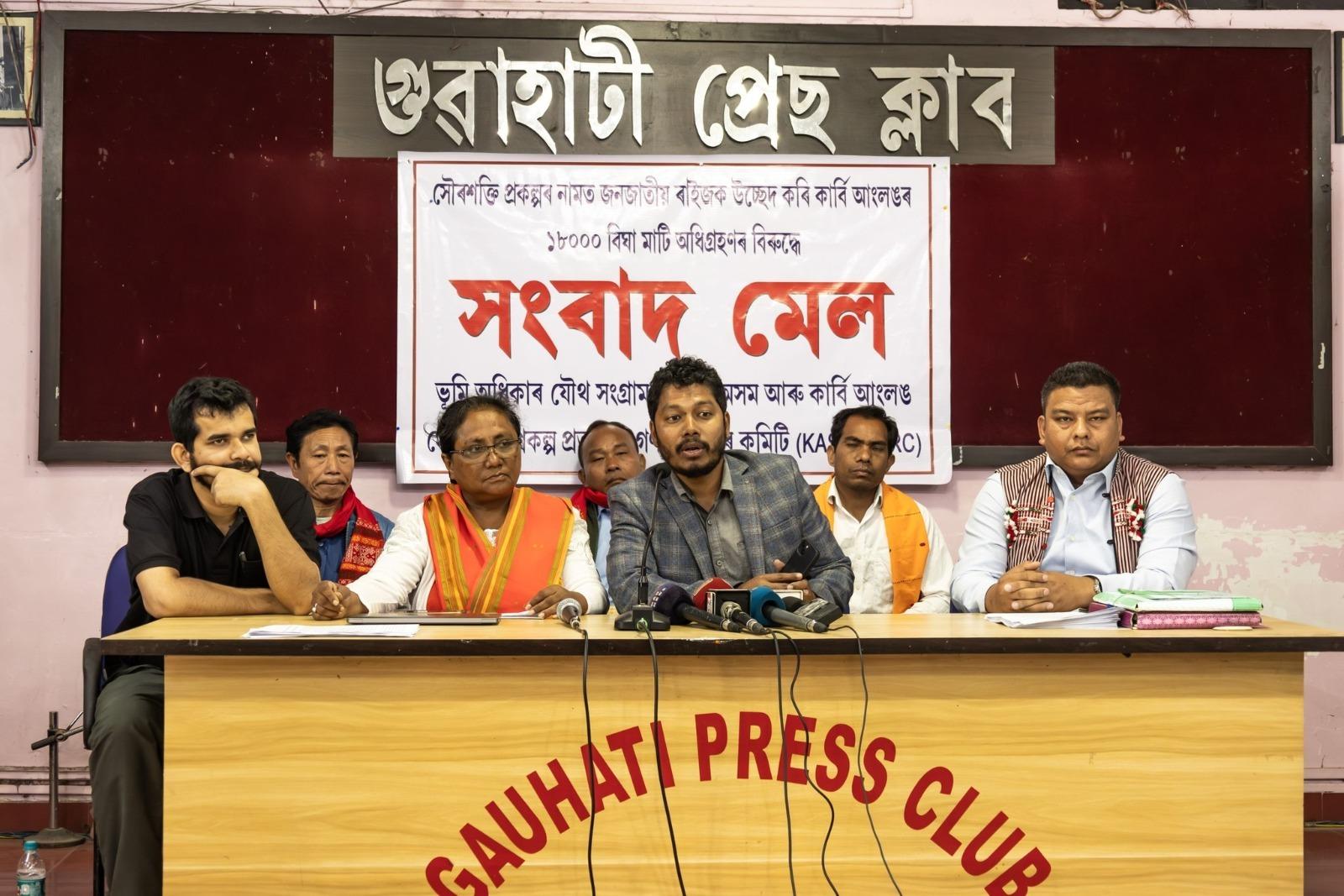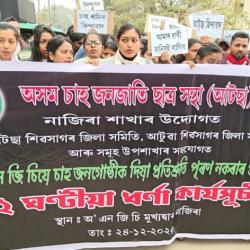The proposed acquisition of 18,000 bighas of land in Karbi Anglong district’s Khatkhati-Longkathar area for a 1,000-megawatt solar power project has sparked widespread fear and protests among the local tribal communities. The central and state governments are pushing forward with the project, which threatens to displace thousands of indigenous people, including Karbi, Naga, and Adivasi communities, who have been living and cultivating the land for generations.
The land in question has been home to these communities for over 200 years, where they have been growing bamboo, banana trees, rabi crops, and broom grass to sustain their livelihoods. The government’s move to acquire this land for the solar project would not only displace families but also destroy their primary source of income.
Today, the Joint Struggle Committee for Land Rights and the Karbi Anglong Solar Power Project Affected People’s Rights Committee held a joint press conference at the Guwahati Press Club, urging the government to immediately revoke the land acquisition decision. Activists Pranab Doley, Subrata Talukdar, Vikram Hanse, and Anita Mese, who addressed the media, accused the BJP-led government of betraying its own slogan of “Jati, Mati, Bheti” (community, land, and base) by targeting the land of Assam’s indigenous people.
The committees alleged that the government is prioritizing the interests of big corporate houses like Adani and Ambani over the welfare of the state’s working-class population. They highlighted that the proposed project, funded by the Asian Development Bank, violates the provisions of the Sixth Schedule, which safeguards the rights of tribal communities in the region.
The project, which has already been approved by the Karbi Anglong Autonomous Council, would displace nearly 20,000 people from 23 villages. The committees criticized the government for moving forward with the acquisition without conducting proper environmental impact assessments or obtaining clearance from the National Wildlife Board.
The activists also pointed out that the proposed project site is rich in biodiversity, with rivers, streams, and forests that are crucial to the local ecosystem. They accused the government of falsely labeling the land as “unusable” to justify the acquisition.
The committees demanded that the government abandon the mega solar project and instead focus on smaller, decentralized solar projects to address the state’s power needs. They warned that displacing indigenous communities to meet the energy demands of Delhi and the central government is unacceptable.
The activists also raised concerns about the feasibility of the project in Assam’s cloudy and rainy climate, questioning its potential success. They vowed to continue their protests if the government does not cancel the project, emphasizing that the livelihoods of thousands and the region’s biodiversity must be protected.
The press conference concluded with a call to the government to prioritize the welfare of the people over corporate interests and to halt the project immediately to avoid further unrest.
- 14902 reads










Add new comment